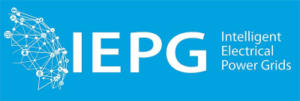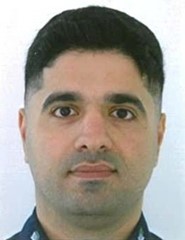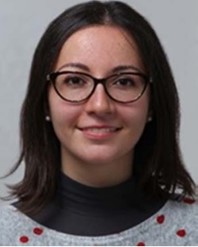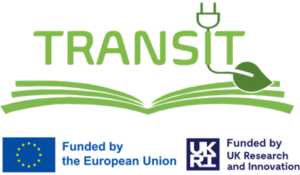Tutorials
At the ISGT2024 conference, 3 tutorials, listed below, will be presented:
- Control of HVDC/AC electrical grids: RTDS hardware-in-the-loop approach
- Utility-Scale Hydrogen Electrolyzers: Dynamic and Steady-State Analysis from Power System Perspective
- TRANSIT – TRANSITion to sustainable future through training and education
Control of HVDC/AC electrical grids: RTDS hardware-in-the-loop approach
 |
 |
 |
Time: TBD (Expected Duration: 4 hours)
Abstract:
The transmission systems are heading towards hybrid using high-voltage AC and DC connections. Power electronic converters contribute to significant changes in the operation and control of the system, its stability, and robustness. For the design of a hybrid electrical grid and preparation for its physical deployment, real-time simulations and hardware-in-the-loop testing are a must.
This tutorial covers the design aspects of the power electronic converters used for DC applications (MMCs) and control of the power systems with the high penetration of renewable energy sources using the real-time hardware, RTDS©. The tutorial will use RSCAD/RTDS open-source libraries during the “hands-on” sessions in RSCAD/RTDS. The participants will be divided into 10 groups, supported by a computer with installed RSCAD and secured access to RTDS cores. Furthermore, one RTDS NovaCor (10 cores) will be present, and the participants will be able to see its operation and connection.
Moderated by: TBD
Participants:
- Dr. Aleksandra Lekić, Assistant Professor, Delft University of Technology, Delft, Netherlands, A.Lekic@tudelft.nl
- Prof. Dr. Pablo Eguia Lopez, Professor, University of the Basque County UPV/EHU, Spain, pablo.eguia@ehu.eus
- Dr. Vaibhav Nougain, Postdoc, Delft University of Technology, Delft, Netherlands, V.Nougain@tudelft.nl
- Milovan Majstorović, Ph.D. researcher, University of Belgrade, Serbia, majstorovic@etf.bg.ac.rs
- Remko Koornneef, Technician, Delft University of Technology, Delft, Netherlands, R.N.Koornneef@tudelft.nl
Utility-Scale Hydrogen Electrolyzers: Dynamic and Steady-State Analysis from Power System Perspective
Time: TBD (Expected Duration: 4 hours)
Abstract:
There are major discussions worldwide on how the production of clean fuels, such as hydrogen, could facilitate the whole-energy system decarbonization. From a power system perspective, green hydrogen production results in massive grid integration of electrolyzers, that needs to be considered in power system analysis. This tutorial presents the modelling foundations of utility-scale hydrogen electrolyzers with alkaline and proton exchange membrane (PEM) technology, including electrolysis stack models, power electronics interface (PEI) and control, thermodynamics, hydrogen production formulations, and operational constraints in downstream hydrogen process/buffer, required for system-level steady-state and dynamic studies in both transmission and distribution grids. Possible PEIs for grid integration of electrolyzers will be discussed, along with the associated control schemes in particular grid-forming load control. It will be discussed how and to what extent electrolysis plants could impact system stability and operation, from both steady-state and dynamic perspectives
Moderated by: TBD
Participants:
TRANSIT – TRANSITion to sustainable future through training and education
Time: TBD
TRANSIT (TRANSITion to sustainable future through training and education) is a project funded by the European Union under the program Horizon Europe that aims to provide sustainable training and re-skilling programmes for current and future generations on a multidisciplinary approach in renewable energy.
In achieving this, TRANSIT seeks to enable the societal changes that will encompass the high ambitions of deployment and transformation of the energy sector in the next decades through the design and delivering of an overall educational, retraining and social engagement programme covering different sectoral strategies and stakeholders.
Moderated by: Tomislav Baškarad, University of Zagreb Faculty of electrical engineering and computing, Croatia
Participants:
- Luis Badesa, Universidad Politécnica de Madrid, Spain
Presentation 1: How to design economic mechanisms for efficient operation of low-inertia power grids
- José Miguel Riquelme, Universidad Politécnica de Madrid, Spain
Presentation 2: Flexible Operation of Storageless Grid-connected Photovoltaic Systems for Frequency Support - Dragan Vučković, University of Niš, Serbia
Presentation 3: The European Green Deal for clean energy transition: Design and Integration of Renewable Energy Sources - Petar Krstevski, Cyril and Methodius University in Skopje, North Macedonia
Presentation 4: Electricity Balancing Markets – Challenges in Regional Integration and Integration of Flexibility from RES, DSM and Storage - Mihailo Micev, University of Montenegro, Montenegro
Presentation 5: Optimal location of distributed energy sources – problems and experiences from Montenegro
[/vc_column_text][/vc_column][/vc_row]





